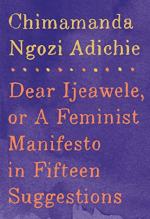
|
| Name: _________________________ | Period: ___________________ |
This test consists of 5 multiple choice questions, 5 short answer questions, and 10 short essay questions.
Multiple Choice Questions
1. Who are social norms created by?
(a) Society as a whole.
(b) The government.
(c) Men.
(d) Human beings.
2. When should Chizalum accept people walking different paths, as recommended by Suggestion 15?
(a) Chizalum should accept different paths if they are morally strong.
(b) Chizalum should accept different paths if they encourage change.
(c) Chizalum should accept different paths if they do no harm to others.
(d) Chizalum should accept different paths if they match her's.
3. Adichie recognizes in Suggestion 14 that female goodness is as normal as what?
(a) Female wealth.
(b) Male goodness.
(c) Male oppression of women.
(d) Female evil.
4. What is the shame we attach to female sexuality truly about, according to Suggestion 12?
(a) Family values.
(b) Biology.
(c) Male dominance.
(d) Control.
5. What is the wish Adichie makes at the end of Suggestion 8?
(a) Adichie wishes someone had told her that women have it difficult, but can overcome anything.
(b) Adichie wishes someone had told her about physical appearances and marriage.
(c) Adichie wishes someone had told her about men in general.
(d) Adichie wishes someone had told her about relationships and female acceptance.
Short Answer Questions
1. What does Adichie truly wish for Chizalum in relation to marriage?
2. What does Adichie ask Ijeawele to do for Chizalum's sense of self at the start of Suggestion 9?
3. What type of woman can undermine feminism with her deceiving words and entitlement, according to the end of Suggestion 14?
4. What is the first descriptor found on Bill Clinton's Twitter account?
5. How does Adichie describe female misogyny in Suggestion 14?
Short Essay Questions
1. What are some examples of the harmfulness of likeability in girls and women, according to Adichie?
2. What recommendation does Adichie make for married couples to embark on together?
3. As stated in Suggestion 13, why does Ijeawele need to know about the romance in Chizalum's life?
4. In Suggestion 14, why does Adichie ask Chizalum to not treat the oppressed like saints?
5. What specific topics and examples can Ijeawele bring into a conversation about difference?
6. At the start of Suggestion 9, why does Adichie think Igbo culture is vital to Chizalum's identity?
7. In Suggestion 7, what is the Adichie's issue with titles, such as Mr. Ms. and Mrs.?
8. Why should marriage never be spoken of as an achievement as mentioned at the start of Suggestion 7?
9. What physical mainstream world values will Chizalum encounter as mentioned on Page 46?
10. What happens in Igbo tradition if a woman wants to leave her husband?
|
This section contains 1,165 words (approx. 4 pages at 300 words per page) |

|




